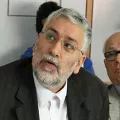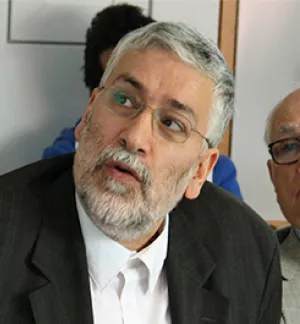Observers would be forgiven for dismissing negotiations over Iran's nuclear program as Kabuki theater. Despite years of on-again, off-again efforts, after all, fears of war continue to simmer.
Such frustrations are understandable -- but they may not be entirely justified. Despite real obstacles, there is a serious chance for progress if both sides come to the table willing to compromise and focused on a step-by-step approach that gives each side real gains, builds confidence, and allows more time for talks on the harder issues. The next round of negotiations between Iran and world powers, slated for May 23 in Baghdad, is crucial -- though only the start of a long road.
No one could claim these negotiations will be easy. Iran and the United States have been locked in mutual hostility since Iran's 1979 Islamic Revolution, and this enmity has produced deep mistrust and tough political constraints on both sides. In a U.S. presidential election year, compromise will be difficult, as no candidate can be seen as "soft" on Iran -- and in Iran, which has a presidential election next year, no faction can be seen as advocating retreat in the face of Western pressure. For a deal to work, both sides have to see it as genuinely serving their national interests.
Nevertheless, as an American and an Iranian, both of us patriots, we believe that a negotiated deal is possible. Although genuine clashes of interests are at stake, we believe our countries would be better served by such a pact, however imperfect, than by continued stalemate or military conflict. For Iran, the status quo means ongoing sanctions, limited access to foreign investment and technology, and the looming danger of military strikes. For the United States, stalemate means no negotiated limits on the Iranian nuclear program, continued high oil prices (reflecting the risks of conflict), and no resolution of U.S.-Iranian disputes over terrorism, Israel, and more.
If the confrontation deteriorated into a military conflict, it would be a disaster for both countries' security. Strikes by the United States or Israel would risk an unpredictable regional conflagration and could convince Iran to redouble its nuclear efforts and build covert sites that would be hard to find and strike.
To open the path to an accord, the parties must combine the realism of small initial steps with a vision of a long-term rapprochement. Early steps should be designed to build confidence on both sides that it is worth continuing the process, and to buy time for further talks.
Bunn, Matthew and Abbas Maleki. “How To Avoid a War with Iran.” Foreign Policy, May 21, 2012







